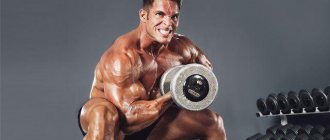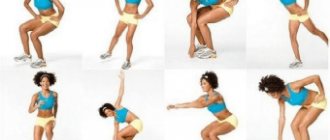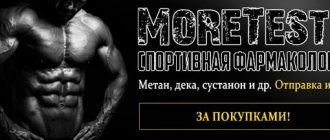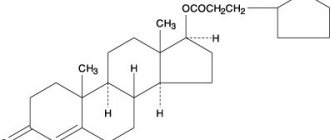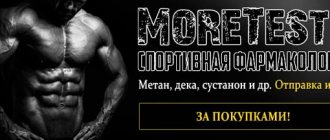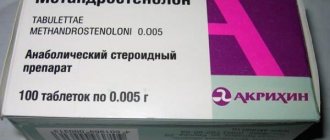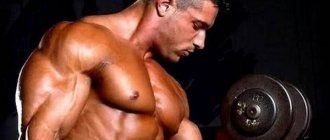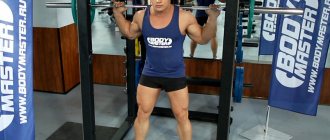Hi people! My name from birth is Vitaly Okhrimenko and today I will begin my post by wishing you all health and longevity.
Today we will talk to you about health diseases and bodybuilding . Let's look at what contraindications are typical for bodybuilding and what diseases are prohibited from playing sports. And most importantly, I propose to understand how bodybuilding affects health, and in general whether bodybuilding is good for health.
What diseases should you not exercise for?
I'm very sorry, but there really are a lot of diseases when bodybuilding will be harmful. Here is a preliminary list of them:
- for the consequences of old injuries, fractures, dislocations, etc.;
- for cancer;
- in acute stages of colds: acute respiratory infections, acute respiratory viral infections, influenza;
- for mental disorders;
- for HIV;
- for scoliosis and flat feet;
- in case of violation of the integrity of the spine;
- for hemorrhoids;
- with a hernia;
- for pulmonary diseases;
- when the functionality of the joints is impaired.
But in addition to the above diseases, there is also a whole bunch of diseases that can either arise or get worse as a result of bodybuilding. However, with the right approach, there is a chance, on the contrary, to improve the condition or profile the disease.
https://youtu.be/05XGB59a7r0
Bodybuilding diseases
As I already said, you shouldn’t be too categorical because everything is useful in moderation. With the right approach, bodybuilding can be practiced with almost any disease, and the only person who has the right to prohibit us from engaging in amateur bodybuilding is a sports doctor. Because only he has enough qualifications and understands both medicine and sports.
Before examining each area of disease, let me start with my own example.
While still at school, I was diagnosed with a duodenal ulcer and scoliosis. I’m sure most doctors would have forbidden me to go near the barbell at all, but going to the gym I didn’t think about it at all. I wanted to create a muscular, attractive body for myself, and little things (at that time I perceived health as little things) hardly bothered me. The first couple of years of training, I devoted myself to the gym to the fullest, absolutely without thinking about any consequences. It’s funny, having acquired knowledge about healthy eating when I came to the gym, I completely forgot about my stomach problems, and this despite the fact that I never denied myself the pleasure of a glass or two on a holiday.
The first thought about health came to me after I tore my back in a mine and went to the hospital for two weeks with a diagnosis of “ lumbodynia ” (the initial stage of radiculitis). After rehabilitation, I began to treat work more carefully (according to the principle: work, don’t be afraid of me, I won’t touch you
), and to exercises such as deadlifts and squats. But, alas, at my job it’s not possible to foresee everything, and a year later I slammed my helmet into the frames as hard as I could (don’t think anything bad, it all happened by accident). Since the head was in the helmet, all the force of the blow fell on the cervical vertebrae.
I worked for another week and got so worked up that I couldn’t get out of bed without my wife’s help. As a result of examination of the cervical spine, scoliosis, Schmorl's hernia and osteochondrosis were discovered. To be honest, at that time I was already thinking about saying goodbye to my hobby. I surfed the Internet and on most forums people shouted STOP BODYBUILDING! I stopped training for about two months. Well, when I let it go, I started to study a little, and - lo and behold (!) I succeeded! For the first six months, I completely eliminated squats and deadlifts from the training program, and made all the exercises that loaded the spine in one way or another twice as light.
By today, I have almost recovered the weights that I had overcome before. The only thing I had to do was replace the deadlift with the Romanian deadlift.
It’s funny, I haven’t been going to the gym for almost a month now (standard excuses: either no money or time) and my cervical spine has started to bother me again. Strictly speaking, there is nothing surprising in this and the reasons for this phenomenon are described below.
The most important idea that I wanted to convey to each of you: if you build a training program correctly, you can deal with any non-critical illness, while rare diseases in bodybuilding are critical in nature, in most cases rather preventive. With the right approach, bodybuilding is good for your health!
The benefits of strength training
Just recently I came across a very interesting article that discussed the benefits of strength training in a completely different way.
The study was published in The American Journal of Epidemiology, which included a population sample of more than 80,306 people over 30 years of age.
This 14-year study examined the association between strength training and all-cause mortality, including mortality from cardiovascular disease and cancer.
Are there any benefits to strength training?
The results of the study were very positive for us athletes, because strength training was associated with a 23% reduction in the risk of death from all causes, as well as a reduction in mortality (and disease) from all types of cancer by as much as 31%!
Remember, I once talked on the pages of my blog about how as soon as I started training, there was a myth going around everywhere that jocks were all sick people, because... they have problems with their kidneys, liver, their pussy is not strong enough, and so on.
So, now the situation has changed dramatically, when the results of many similar studies became known.
All body systems work more harmoniously if a person exercises COMPETENTLY and adheres to a HEALTHY nutrition plan.
What kind of strength exercises are beneficial?
Many can say that they live in a province where there is no specialized equipment for training with iron (yeah, tell that to me, a person who comes from a town in Karelia with a population of 15,000 people).
Well, that's not such a problem. Moreover, I once already wrote an article about how to train in the village with my grandmother) Be sure to read)
But that’s not about that now.
It has been proven that ANY STRENGTH EXERCISES, even exercises with your own weight, which, as you understand, can be performed in any conditions without specialized equipment (we can do push-ups, pull-ups, squats almost anywhere), give comparable results to strength training in the gym.
Those. If we talk specifically about health, then there is practically no difference where you do strength exercises, at home or in the gym.
But the effectiveness for muscle growth will naturally be higher in the gym, because... there is an opportunity to ensure a constant PROGRESSION OF LOADS (due to working scales). On the other hand, if you can provide yourself with a progression of loads, then you can successfully grow muscles even at home.
By the way, here is an article on my blog about how to build muscles at home.
Only the security forces can prolong our lives?
Naturally, the researchers went further and took data from other types of physical activity.
Interestingly, strength training alone can already reduce the risk of developing cancer and death from it, but strength training combined with cardio training (aerobic physical activity) has shown even greater effectiveness.
Conversely, it is interesting that doing only aerobic exercise (eg just running 150 minutes per week) without combining it with strength training has a WORSE effect on improving quality of life and reducing the risk of mortality than strength training alone or a combination of strength training and cardio.
I advise you to read the article on my blog about what is the most effective cardio workout for burning fat.
Is strength training harmful?
There was no evidence of a relationship between strength training and an increased risk of death from cardiovascular disease.
By the way, in order for the data from this study to be as objective as possible, scientists made appropriate adjustments to the data in order to reduce the influence of other factors, such as age, gender, health status, lifestyle and level of education.
Also, participants who died from the causes under study in the first 2 years of the study were excluded from the total initial sample.
If you're interested in checking out one of the studies I came across, here's a link to it: https://www.ncbi.nlm.nih.gov/pubmed/29099919
Diseases that you need to think about if you have them
Now I will give the most, so to speak, occupational diseases in the presence of which you need to be careful about bodybuilding.
These diseases, moreover, can often be triggered by weight training. Just please do not consider this list as a categorical refusal to train, because any of the diseases listed below is more of an opportunity to reconsider your lifestyle and attitude towards sports than a strict prohibition. So, what are the health benefits of bodybuilding?
Types of bodybuilding
Bodybuilding differs between amateur and professional. Bodybuilding is also divided into several subtypes:
- Natural. Was popular in the 90s. It involves building an ideal body without the use of steroids or doping drugs. Anabolic processes occur naturally. The goal of natural bodybuilding is to improve physical fitness, improve health, and have a harmoniously developed body.
- Classical. Differs in the presence of height and weight categories. In classical bodybuilding, harmonious body proportions, relief and dryness are valued, rather than muscle hypertrophy.
- Beach. Participants are prohibited from performing in swimming trunks; shorts are allowed. Participants do not use makeup or oil. Beach bodybuilding is a strength direction aimed at the harmonious development of the body without pumping muscles.
- Female. Over time, it lost its popularity as competitions among women led to girls gaining muscle mass to the detriment of the traditional proportions of the female body. This caused pronounced symptoms of masculinization among the participants - deepening of the voice, masculine facial features and figures.
Bodybuilding and the heart
Of course, heavy, grueling training can negatively affect the functioning of our most important muscle.
Possible diseases:
- cardiac ischemia;
- hypertension.
Symptoms of illnesses:
- increased blood pressure;
- tachycardia;
- depressed state;
- decline in performance;
- dizziness;
- nausea;
- general weakness;
- pain in the chest;
- hard breath;
- arrhythmia;
- shortness of breath.
Causes of ailments:
- brutal training, which is called “wear and tear”;
- insufficient fluid intake;
- abuse of caffeine and energy drinks;
- insufficient rest time between sets to normalize heart rate.
Recommendations:
- alternating both intensity and severity of training;
- nutrition rich in microelements and nutrients;
- taking medications to improve blood flow (angioprotectors);
- good rest between workouts;
- increased H2O consumption (both in and outside of training);
- abstaining from training in a stuffy, poorly ventilated room;
- mandatory inclusion of cardio equipment in the training program.
Benefits of bodybuilding for the heart:
Weight training improves vascular conductivity, improves resistance to stress and prolongs the longevity of the heart muscle.
Bodybuilding and the spine
Of course, the pressure of gravity on the intervertebral discs has a negative impact on our back. But with the right approach, here, instead of crosses, you can consider only solid advantages.
Possible diseases:
- scoliosis;
- intervertebral hernia;
- Schmorl's hernia;
- osteochondrosis.
Symptoms of illnesses:
- crunch in the spine;
- systematic aching back pain;
- shooting pains in the back;
- stiffness and limitation of mobility;
- poor posture;
- pain that occurs in specific positions or exclusively under load.
Causes of ailments:
- neglecting warm-up;
- inadequate assessment of one's own capabilities;
- training with extreme weights;
- too many basic exercises in the training program;
- training too often.
Recommendations:
- keep a training diary so that when starting an exercise you can always resort to past experience and know what weight to work with;
- exclusion of the most uncomfortable exercises from the training program (for me these are pull-ups and overhead barbell presses);
- warm-up before training and cool-down after training;
- do each basic exercise gradually, reaching working weights from the 2nd or even 3rd approach;
- is attentive to back pain;
- If you feel pain during training, cool down and go home.
Benefits of bodybuilding for the back:
By strengthening the back muscles, the load on the spinal joints is relieved in everyday life. Bodybuilding is especially useful for those who lead a sedentary lifestyle. Strong muscles fix the spine, preventing loose discs due to osteochondrosis and intervertebral hernia. Accelerated bodybuilding exercises have a good effect on posture problems.
What is the benefit?
- With intensive and daily training, the human body becomes slim and toned . Bodybuilding is a great way to lose weight.
- By practicing this sport, the heart becomes more resilient, and the blood vessels become stretchable and elastic.
- Bodybuilding has a beneficial effect on the circulatory system , this allows blood to circulate better in the vessels, and thanks to exercise, cholesterol plaques break through.
- It should be remembered that when training, a person produces a hormone of joy - endorphin , this has an excellent effect on the body. Exercising helps to cope with depression, because during exercise, a substance similar in properties to an antidepressant is released in the athlete’s head.
- An athlete - a bodybuilder - is not afraid of such a diagnosis as arthritis. After all, thanks to exercise, the strength of bones and joints is maintained.
- Eating right and exercising can help a person with diabetes. Exercise clears the blood of excess sugar because it is used as a source of energy during exercise.
- If a person has had a spinal injury, then he should take up bodybuilding. Because the intercostal muscles are trained, which helps make breathing easier.
Bodybuilding and joints
Damage, sometimes irreversible, to the joints is a fairly common occurrence among bodybuilders. And it’s not that this is inevitable, the problem is rather that athletes do not think about preventing wear and tear on their joints until trouble specifically strikes them.
Possible diseases:
- arthritis;
- arthrosis;
- bursitis;
- tendinitis;
- stretching
Symptoms of illnesses:
- crackling joints;
- aching pain in a specific joint;
- pain under exertion;
- limitation of joint mobility associated with pain.
Causes of ailments:
- working with critical scales;
- insufficient warm-up before training;
- wear and tear of joints.
Recommendations:
- good warm-up before training;
- consumption of vegetable fats;
- periodic drinking of fish oil;
- exclusion of uncomfortable exercises from the program;
- do not tie tight bandages on joints;
- react to painful sensations and, if necessary, quit
- exercise and consult a doctor.
The benefits of bodybuilding for joints:
Moderate amateur bodybuilding exercises can serve well for the longevity of joints, but the risk of injury is still quite high, so you need to be very careful with your joints and periodically spend money on fish oil.
How to avoid myocardial hypertrophy
Let us remember once again that the cause of hypertrophy is the acidification of myocardial tissue and its further thickening with connective tissue. And also a quick and large gain of muscle mass, which during a hard workout creates blood resistance. To avoid this, you need to:
- Before starting a hard workout, do a 5-10 minute warm-up. This could be an exercise bike, a treadmill, or that same jump rope. In fact, it doesn’t matter what we use, the main thing is to prepare the heart for heavy loads, gradually increasing the heart rate. And don’t forget about stretching and warming up your muscles and joints.
- When performing an exercise, do not start with the maximum weight. The number of plates on the bar should be increased gradually, this will reduce the load on the heart and protect the joints.
- Breath. Under no circumstances should you hold your breath while performing any exercise. In the light phase of movement - inhale, during the period of load - exhale.
- Heart rate. Try to monitor your heartbeat without exceeding the maximum permissible limits. Typically this is 180 beats per minute. To do this, you can buy a heart rate monitor or monitor your heart rate manually.
- Try to avoid a lot of compound exercises. The basic exercise is multi-joint, and as a result, a large number of muscles are involved in the work. And the more muscles are used, the more they resist the flow of blood. As a result, the heart has to create more pressure to push blood through. To avoid this, increase your rest time between sets and don't do more than one of the big three compound exercises (press, deadlift and squat) per workout.
- Cardio. It is the most important element of heart training. Without doing cardio, it is difficult to keep your heart healthy. A striking example of this is bodybuilding star and founder of the high-intensity training system Mike Mentzer. He believed that there was no need to do cardio training, since it inhibited the process of muscle growth. As a result, Mike Mentzer died at the age of 49 from a heart attack.
Summarizing all of the above, one may get the opinion that bodybuilding and the heart without hypertrophy are not realistic. However, it is not. By approaching your workouts wisely and paying due attention to cardio training, you can keep your heart healthy. The main thing is not to chase quick results. In its growth, the heart must keep pace with the growth of the total muscle mass of the body. If it lags, problems will arise.
Watch your heart, do cardio, pump iron and be healthy!
Bodybuilding and muscles
No matter how absurd what I’m about to say may sound, bodybuilding in specific cases can also have a far from positive effect on muscles.
Possible diseases:
- demineralization;
- dehydration;
- overtraining.
Symptoms of illnesses:
- convulsions;
- pain from touch;
- painful sensations when moving;
- increased body temperature;
- decreased performance.
Causes of ailments:
- a fundamentally wrong approach to nutrition and training;
- insufficient protein intake;
- exclusion of carbohydrates or fats from the diet;
- drinking little;
- exercising too frequently and/or too intensely.
Recommendations:
- train no more than 3 times a week;
- eat a lot of protein;
- do not neglect fats and carbohydrates;
- increased consumption of H2O (both in and outside of training).
The benefits of bodybuilding for muscles:
If you train correctly, then there is only one benefit. The muscles become stronger, more resilient, retain their functions longer, and the speed of muscle contraction improves.
What is bodybuilding?
Bodybuilding is a strength sport, its goal is to develop muscle groups at the maximum level . To work all the muscles, you need to train hard. Physical activity alone will not be enough to achieve the desired result. In order for muscle tissue to increase in size, it is necessary to eat protein; it is the building component of muscle tissue.
If there are no hormones such as insulin and testosterone in the blood, then the result will have to wait a long time, which is why bodybuilders take drugs such as steroids. Unfortunately, taking such substances in large quantities can cause great harm to the human body.
Bodybuilding and vision
Vision problems are more common among professional bodybuilders, although there is still a certain risk for amateurs.
Possible diseases:
- glaucoma;
- myopia;
- astigmatism.
Symptoms of illnesses:
- sudden deterioration of vision;
- lack of focus;
- circles before the eyes.
Causes of ailments:
- a sharp increase in intracranial, and as a consequence, intraocular pressure, which is directly related to holding the breath before a push or jerk;
- working with record weights;
- frequent trierov with insufficient time for rest;
- too intense training.
Recommendations:
- reduce the intensity of training;
- train with gradual loads without record weights;
- playing sports in a cool, well-ventilated area;
- performing gymnastics for the eyes.
Benefits of bodybuilding for vision:
Training will be beneficial for your vision if you do not lift heavy weights for 1-5 repetitions per set and only exercise while in a rested state.
Steroids and the cardiovascular system: the opinion of ordinary people
There is no clear opinion about the effect of anabolic and androgenic steroids on the cardiovascular system. Experts in the field of sports pharmacology claim that steroids do not have a direct negative effect on the heart. And if you follow the recommended rules for taking and conducting post-cycle therapy, no negative consequences will arise. The generally accepted public opinion is adamant: steroids are harmful to the heart and any abnormalities in its functioning directly depend on these drugs. An example is the decrease in high-density lipoproteins (the so-called good cholesterol) in the body, which occurs when taking steroids in high dosages.
Good cholesterol and low-density lipoproteins (LDL) in the human body are in an approximate ratio of 60% to 34%. A change in one of these ratios towards an increase in LDL and a decrease in HDL is a direct path to the appearance of diseases of the cardiovascular system - ischemia, atherosclerosis, and other dangerous diseases.
In addition, it is generally accepted that a significant excess of the dosage of steroid drugs will certainly lead to increased blood pressure, tachycardia, arrhythmia and, as a consequence, to heart attack and stroke. At the same time, no one has bothered to specify exactly what dosage of anabolic steroids leads to such consequences.
Another common opinion is that taking anabolic/androgenic steroids causes myocardial hypertrophy. Typically, if a weightlifting athlete is diagnosed with left ventricular hypertrophy, doctors are convinced that the changes in the heart are caused by the effects of steroids.
Our information: the above abnormalities in the functioning of the heart are the beginning of serious diseases of the cardiovascular system.
Workouts and colds
There was once a lot of controversy surrounding bodybuilding and colds. Some insisted that it is necessary to exercise despite the symptoms, others say that there is no point in such activities. American scientists experimentally resolved this dispute. They infected a group of bodybuilders with a cold virus, and left one half without training, while the other half continued to actively train.
As a result, those subjects who allowed the body to calmly cope with the virus without overloading them with training recovered an order of magnitude faster. It is interesting that the anabolic effect was not in any way beneficial for the trainees. The fact is that any cold suppresses the anabolic effect and activates cortisol (catabolic effect).
Bodybuilding after illness
After recovery, it is advisable to refrain from bodybuilding for 1-3 days, after which you can gradually begin training. Even if your body seems to have recovered and you feel 100% healthy, rushing to reach maximum working weights is highly not recommended.
Bodybuilding and recovery from illness are somewhat delicate things. It is very advisable not to overexert yourself in training for 7-10 days after the cold has gone away, allowing your body to recover and return to its previous rhythm. Working weights should be reduced by about 30%, while also reducing the intensity of the workout.
Steroids and the cardiovascular system: research by scientists
As already noted, a change in the ratio of high-density linoproteins and low-density linoproteins in the body under the influence of androgenic/anabolic steroids can indeed lead to disturbances in the functioning of the heart.
Several years ago, scientists actively studied the effect of sports pharmacology drugs on the human cardiovascular system. Surprisingly, they were unable to find abnormalities in heart function in bodybuilders who took anabolic steroids, and they were unable to detect significant differences in the structure of the functional organs of the cardiovascular system in athletes who used steroids in their practice and in athletes who never took them . Confirmation of this is contained in the 2001 scientific work “Steroids and Arterial Structure and Function in Male Bodybuilding.”
Another study was conducted in 1997. The experiment concerned not only the effect of anabolic steroids on the heart. Experts have studied the effect of age-related changes on the production of the hormone testosterone. The study involved men from 40 to 60 years old (66 people).
The experiment found that a decrease in testosterone production in men over forty years of age occurred simultaneously with an increase in triglycerides in the body and a decrease in the level of high-density linoproteins. After completing the study, scientists concluded: the tendency to heart disease directly depends on the level of the hormone testosterone in the blood of men.
Our information: you can increase the level of male hormone quickly and safely if you buy Deca Durabolin in the online store of sports pharmacology drugs.
Similar scientific work was carried out by Polish scientists Zgliczynski, Ossowski, Slowinska-Srednicka in 1996. They studied the effect of sports pharmacology drugs on the cardiovascular system. 22 men with low testosterone in the blood received injections of testosterone enanthate at a dosage of 200 mg every day. After the end of the experiment, it turned out that the patients’ testosterone and estradiol returned to normal, HDL remained within normal limits, and LDL content decreased.
The effect of high doses of anabolic steroids on blood vessels and the heart was studied by scientists from the US University of North Texas. The purpose of the scientific work for scientists was to show the effect of steroids on low- and high-density lipoproteins. As a result of the study, a decrease in HDL was noted, and the scientists found that at high doses of steroids, LDL also decreased along with HDL. Triglycerides remained within normal limits. Researchers also documented low levels of apolipoprotein B in the body (high levels increase the risk of serious heart disease).
Scientists have concluded that increased dosages of steroids do not cause a risk of cardiovascular diseases.
A lot has been written and said about the effect of anabolic drugs on increasing blood pressure. Opponents of sports pharmacology associate high blood/arterial pressure with taking anabolic steroids. But, as it turned out, not everything is clear here either. There is a study on this topic (it was carried out in 1988 for the Journal of Hypertension). The experiment revealed that blood pressure increases when testosterone production in the body decreases. In addition, it became known that not all drugs lead to fluid retention, weight gain and increased blood pressure. You can find out whether any steroid leads to such phenomena from the instructions for use, and you can learn about the characteristics of your own body and the tendency to certain diseases only after a thorough medical examination.
Left ventricular hypertrophy and the causes of its occurrence in athletes were studied by scientists from the US University of North Texas. The researchers came to the conclusion that steroids do not cause this deviation, but it can be caused by excessive physical activity, which prevails in all athletes involved in professional sports.
